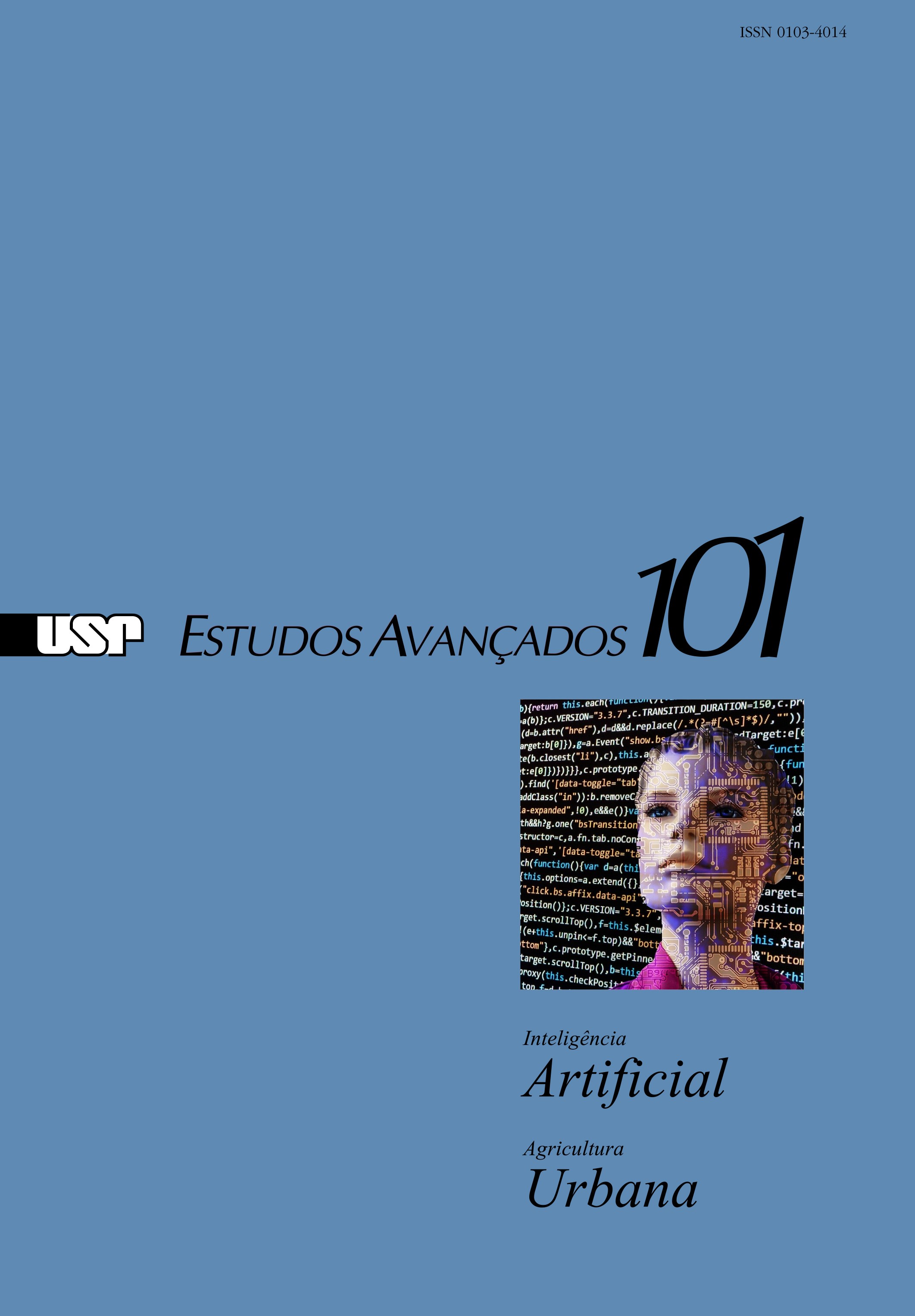Artificial Intelligence: risks, benefits and responsible use
DOI:
https://doi.org/10.1590/s0103-4014.2021.35101.003Keywords:
Artificial Intelligence, Machine Learning, Responsible AIAbstract
We are using Artificial Intelligence-based technologies in an increasing number of systems and tools. Artificial Intelligence can reduce the need for human presence in many dangerous, monotonous and tiring activities, freeing us for less dangerous and more challenging and stimulating activities. At the same time, Artificial Intelligence can increase existing risks and introduce new risks. To avoid or reduce these risks, new Artificial Intelligence algorithms must be developed or used in new and innovative ways, taking into account ethical, social and legal issues.Downloads
References
ARRIETA, A. B. et al. Explainable Artificial Intelligence (XAI): Concepts, taxonomies,
opportunities and challenges toward responsible AI. Information Fusion, v.58, p.82-
, 2020. Disponível em: <https://www.sciencedirect.com/science/article/pii/
S1566253519308103?via%3Dihub>.
BOTARI, T. et al. Local Interpretation Methods to Machine Learning Using the Domain of the Feature Space. 30th European Conference on Machine Learning and Principles and 23rd Practice of Knowledge Discovery in Databases, PKDD/ECML 2019,
Workshops (1), Communications in Computer and Information Science, v.1167,
p.241-52, 2020. Springer. Disponível em: <https://doi.org/ 1 10.1007/978-3-030-
-4_21>.
ETZIONI, O. Point: Should AI technology be regulated?: yes, and here’s how. Communications ACM, v.61, n.12, p.30-2, 2018. Disponível em: <https://cacm.acm.org/
magazines/2018/12/232893-point-should-ai-technology-be-regulated/fulltext>.
FACELI, K. et al. Inteligência Artificial – Uma Abordagem de Aprendizado de Máquina. 2. edição. GrupoGen, 2021. Disponível em: <https://www.grupogen.com.br/e-
-book-inteligencia-artificial-uma-abordagem-de-aprendizado-de-maquina>.
GOOD, I. J. Speculations Concerning the First Ultraintelligent Machine. Advances
in Computers, v.6, p.31-88, 1966. Disponível em: <https://doi.org/10.1016/S0065-
(08)60418-0>.
GRGIC-HLACA et al. Human Perceptions of Fairness in Algorithmic Decision
Making: A Case Study of Criminal Risk Prediction. In: PROCEEDINGS OF THE
WORLD WIDE WEB CONFERENCE (WWW ‘18)., Geneva, p.903-12.
DOI:https://doi.org/10.1145/3178876.3186138
HAJIAN, S. et al. i. Fair pattern discovery. In: PROCEEDINGS OF THE 29TH
ANNUAL ACM SYMPOSIUM ON APPLIED COMPUTING (SAC ‘14). Association for Computing Machinery, New York, USA, p.113-20, 2014. DOI:https://doi.org/10.1145/2554850.2555043
O’KEEFE, K.; BRIEN, D. O. Ethical Data and Information Management: Concepts,
Tools and Methods. s. l.: Kogan Page Ltd., 2018. Disponível em: <https://dl.acm.
org/doi/abs/10.5555/3265200>.
PEREIRA, F. S. F. et al. Gradient Boosting Machine and LSTM Network for Online
Harassment Detection and Categorization in Social Media. 30th European Conference on Machine Learning and Principles and 23rd Practice of Knowledge Discovery in
Databases, PKDD/ECML 2019, Workshops (2), Communications in Computer and
Information Science, v.1168. p.314-320, 2020 Springer. Disponível em:
org/ 10.1007/978-3-030-43887-6_25>.
PRICE, H, VOLD, K. Living with AI. Research Horizons, v.I, n.35, p.20-1, February
University of Cambridge. Disponível em: <https://www.cam.ac.uk/system/files/issue_35_research_horizons.pdf>.
REIS, M. C. G. Fedro. São Paulo: Penguin Companhia, 2016. Disponível em: <https://www.companhiadasletras.com.br/detalhe.php?codigo=85146>.
YANG, Z. et al. Investigating Grey-Box Modeling for Predictive Analytics in Smart Manufacturing. Proceedings of the ASME 2017 International Design Engineering Technical Conferences and Computers and Information in Engineering Conference. Volume
B: 43rd Design Automation Conference. Cleveland, Ohio, USA. August 6–9, 2017.
V02BT03A024. ASME. Disponível em: <https://doi.org/10.1115/DETC2017-
>.
YOUYOU, W. et al. Computers judge personalities better than humans. Proceedings of
the National Academy of Sciences, v.112, n.4, p.1036-1040, jan. 2015. Disponível em:
<https://www.pnas.org/content/112/4/1036>.
WELLER A. Transparency: Motivations and Challenges. In: SAMEK, W. et al. (Ed.)
Explainable AI: Interpreting, Explaining and Visualizing Deep Learning. Lecture Notes in Computer Science, v.11700, p.23-40, Springer, 2019. Disponível em: <https://link.springer.com/chapter/10.1007%2F978-3-030-28954-6_2>.
Downloads
Published
Issue
Section
License
Copyright (c) 2021 André Carlos Ponce de Leon Ferreira de Carvalho

This work is licensed under a Creative Commons Attribution-NonCommercial 4.0 International License.
Estudos Avançados não celebra contrato de cessão de direitos autorais com seus colaboradores, razão pela qual não detém os direitos autorais dos artigos publicados. Os interessados em reproduzir artigos publicados na revista devem necessariamente obter o consentimento do autor e atribuir devidamente os créditos ao periódico.


